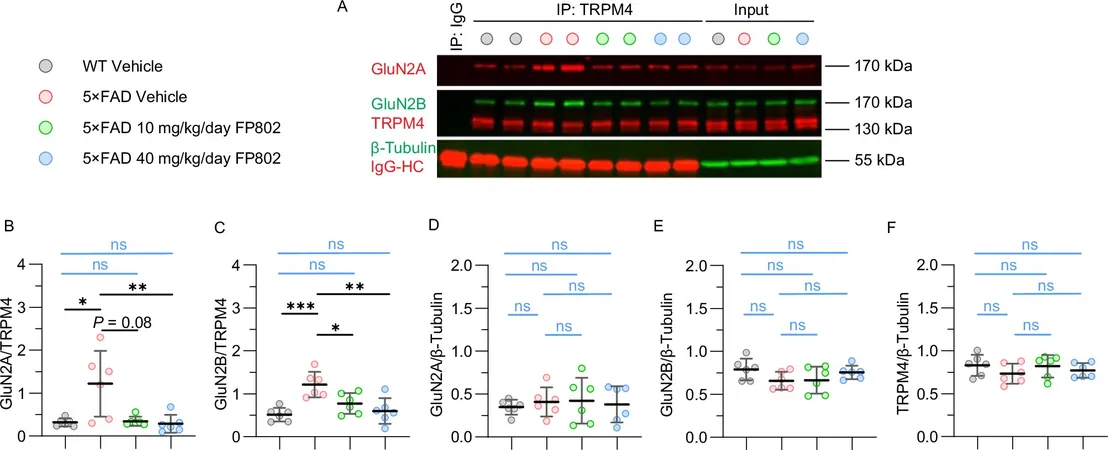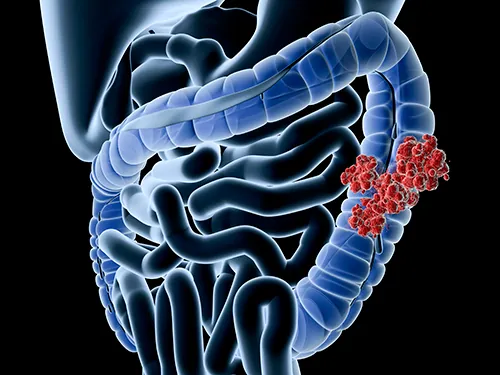
Breakthrough Discovery Reveals How Key Protein Complex Triggers Nerve Cell Death in Alzheimer's
2025-08-26
Author: Wei
Alzheimer's Crisis: Unraveling the Molecular Mystery
A groundbreaking study led by neurobiologist Prof. Dr. Hilmar Bading from Heidelberg University reveals a crucial molecular mechanism behind the progression of Alzheimer's disease. This pivotal research, published in the prestigious journal *Molecular Psychiatry*, offers new hope for effective treatments.
The Deadly Duo: NMDA Receptor and TRPM4 Ion Channel
Collaborating with scientists from Shandong University in China, the team explored an Alzheimer's mouse model and identified a neurotoxic protein complex that leads to the death of nerve cells, resulting in cognitive decline. This protein-protein complex, previously known to researchers, consists of the NMDA receptor and the TRPM4 ion channel.
The NMDA receptor, essential for nerve cell communication, is activated by the neurotransmitter glutamate. While synaptic NMDA receptors are vital for cell survival and cognitive function, the TRPM4 channel transforms extrasynaptic NMDA receptors into agents of toxicity, creating a dangerous "death complex".
Game-Changer: Disrupting the Neurotoxic Complex
In their experiments, the researchers discovered that the dangerous NMDAR/TRPM4 complex is significantly elevated in Alzheimer's mice compared to healthy ones. They tested a novel drug, FP802—a "TwinF Interface Inhibitor" developed in Bading's lab—which proved capable of disassembling this lethal complex. By binding to the interaction site between TRPM4 and NMDA receptors, the inhibitor effectively halts their destructive partnership.
Hope for a Bright Future: Slow Down Alzheimer's Progression
Remarkably, treatment with FP802 led to a noticeable slowdown in disease progression in Alzheimer’s mice. Dr. Jing Yan, a key researcher in this study, reported that typical Alzheimer-related cellular damage—such as synapse loss and mitochondrial dysfunction—was either limited or absent in treated mice. Cognitive functions like memory and learning remained intact.
A Paradigm Shift in Alzheimer’s Treatment
Prof. Bading emphasized that this approach marks a departure from traditional treatment strategies that focus on amyloid formation. Instead, they target the damaging NMDAR/TRPM4 mechanism that not only causes nerve cell death but also fosters amyloid plaque accumulation. Additionally, earlier research indicated similar protective effects of FP802 in models for amyotrophic lateral sclerosis (ALS), suggesting a broad therapeutic potential for neurodegenerative diseases.
Moving Towards Clinical Application
Despite the promising preclinical findings, Prof. Bading cautioned that a long road lies ahead before FP802 can be applied clinically. Extensive pharmacological development, toxicological testing, and clinical trials will be crucial to refining this neuroprotective molecule. In collaboration with FundaMental Pharma, efforts will intensify over the coming years to bring this revolutionary therapy closer to reality.



 Brasil (PT)
Brasil (PT)
 Canada (EN)
Canada (EN)
 Chile (ES)
Chile (ES)
 Česko (CS)
Česko (CS)
 대한민국 (KO)
대한민국 (KO)
 España (ES)
España (ES)
 France (FR)
France (FR)
 Hong Kong (EN)
Hong Kong (EN)
 Italia (IT)
Italia (IT)
 日本 (JA)
日本 (JA)
 Magyarország (HU)
Magyarország (HU)
 Norge (NO)
Norge (NO)
 Polska (PL)
Polska (PL)
 Schweiz (DE)
Schweiz (DE)
 Singapore (EN)
Singapore (EN)
 Sverige (SV)
Sverige (SV)
 Suomi (FI)
Suomi (FI)
 Türkiye (TR)
Türkiye (TR)
 الإمارات العربية المتحدة (AR)
الإمارات العربية المتحدة (AR)